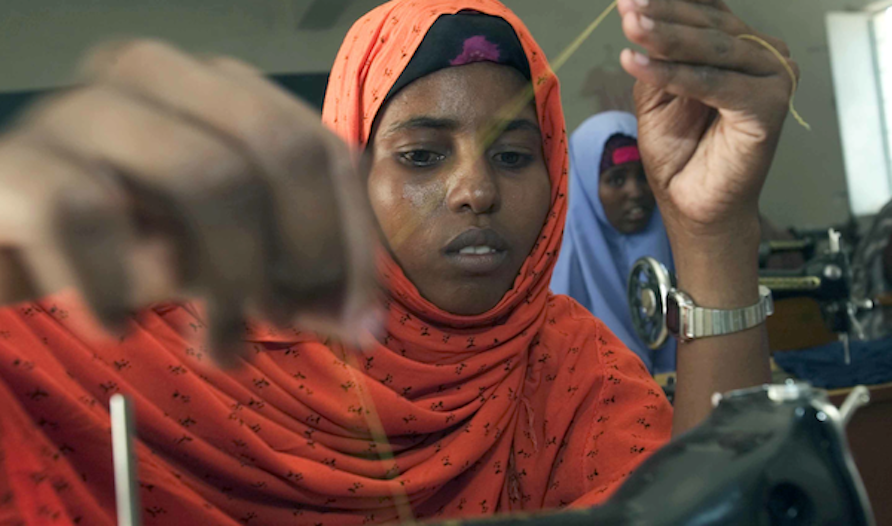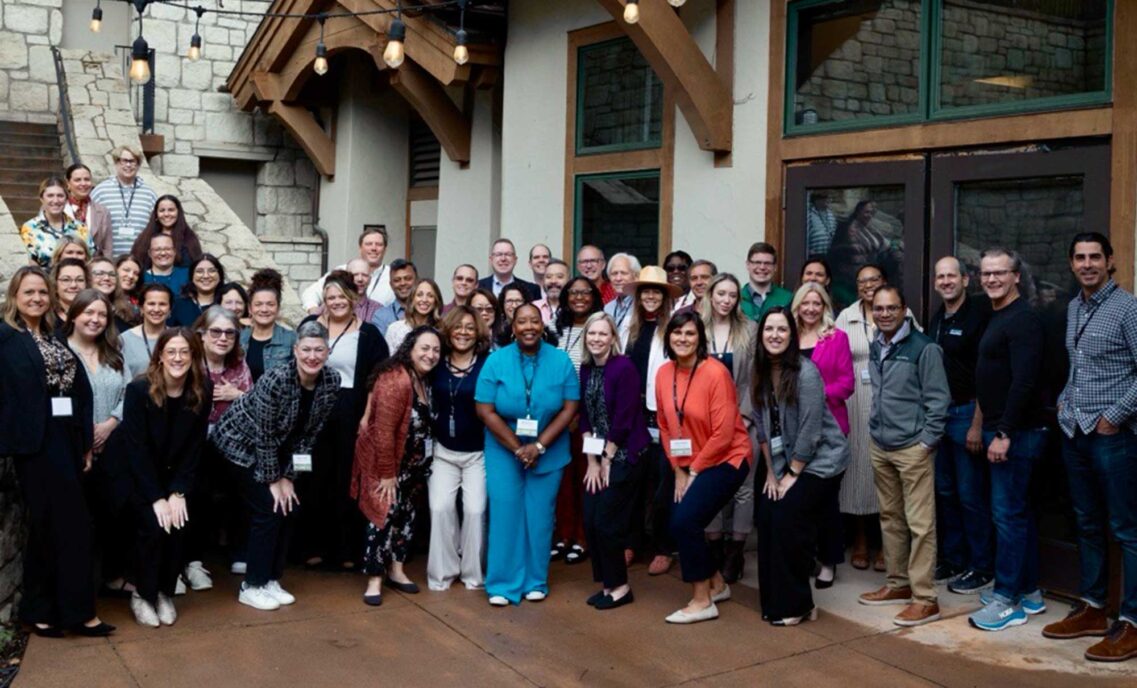You probably know that our company founder, Levi Strauss, along with his business partner, Jacob Davis, invented the blue jean 140 years ago.
What you may not know is that Levi Strauss & Co. invented the first blue jeans for women, back in 1934.
In 1991, ours was the first multinational apparel company to introduce health safety and environmental standards at the factories and for the workers – mostly women – where our products are made.
And in 2010, we were one of the first companies to sign the United Nations Women’s Empowerment Principles.
My point? Women matter.
This morning, I had the opportunity to reinforce this message. I spoke at the fall symposium of the UN Global Compact U.S. Network.
You could say I was “preaching to the choir,” as I know this audience shares my views. In fact, the symposium’s theme was “The Business Value of Women’s Empowerment.”
I told the audience how proud I am to work for a company that has not only long recognized that women matter, but has also acted like it.
It’s not surprising that I ended up at such a company. I’m fortunate to have grown up in a family where women mattered. My brother will tell you that. He was the only boy among seven children – six girls; one boy – and he will tell you that women matter.
My parents didn’t raise us with stereotypes, so my sisters and I grew up with the benefit of not knowing there were limitations out there – that society wanted to categorize us and restrict us to certain roles and fewer responsibilities than, say, my brother might’ve had.
I was fortunate. Others aren’t so lucky.
We have so much work to do to recognize the business value of women’s empowerment, including in the industry where I find myself today.
The statistics tell the story. Women make up 70 percent of the world’s poorest people. They work two-thirds of the world’s working hours, yet earn only a fraction of global income.
Two-thirds of the world’s uneducated children are girls, and two-thirds of the world’s illiterate adults are women.
Global gender discrimination is endemic, and it can be seen throughout the world – in a lack of healthcare priorities, the ignoring of violence against women, and cultural norms that prevent girls and women from educational opportunities.
This inequality – this bias against women – keeps us all from moving forward.
Too many women remain trapped at the bottom of society that prevents progress on reducing poverty, and it limits economic development.
In other words, we all suffer and we all pay the price.
The good news – or the silver lining in this dark cloud – is that these facts are reversible.
Not only do women matter, they’re smart investments.
Improving the lives of women has a multiplier effect that results in improved overall health, economic development, and even resource conservation. And this, in turn, extends to families, communities and future generations.
For Levi Strauss & Co., engagement on women’s issues is a natural fit. We have a history of social progress – from desegregating our company-owned factories years before the law required it to our action as the first Fortune 500 company to provide health benefits to same-sex couples.
I mentioned the health, safety and environmental standards we introduced in vendor factories in 1991. These Terms of Engagement ensure that the workers who make our clothes are treated fairly. We’re now piloting a new project, Improving Workers’ Well Being, intended to make these workers’ lives better beyond the factory walls.
Also, working with BSR and other companies, we’ve helped bring another program, HERproject, to more than 225 factories in nine countries, reaching more than 250,000 workers. HERproject provides education and access to health services for female apparel workers.
Factories that have implemented HERproject report a decrease in worker absenteeism and turnover. They also report an increase in overall worker productivity.
There’s so much more work to do to bring gender equality to life. And it’s going to take tremendous efforts by people, governments, non-governmental organizations and companies like mine to change things.
It will take all of us, working togethet. And we are grateful to the UN and the Women’s Empowerment Principles for providing guideposts for action.
Women’s contributions are immeasurable and their potential is limitless – if given the opportunity and support they need and deserve. This is what my parents taught me. It’s what I practice at work. And it’s what I teach my children.
Women matter.








